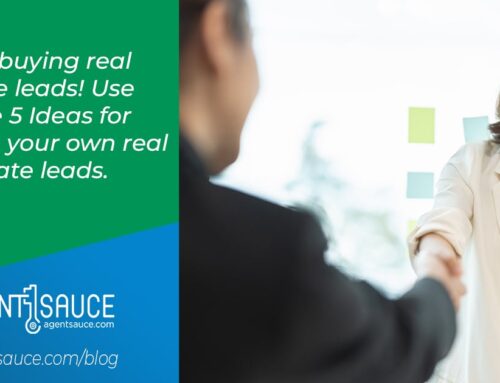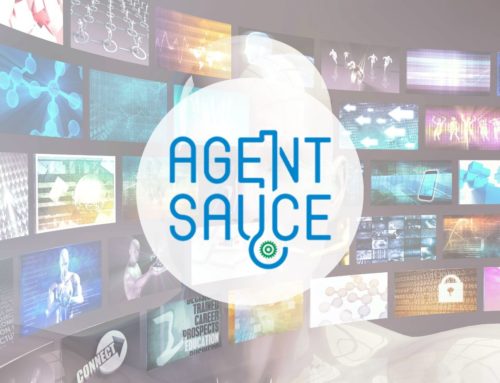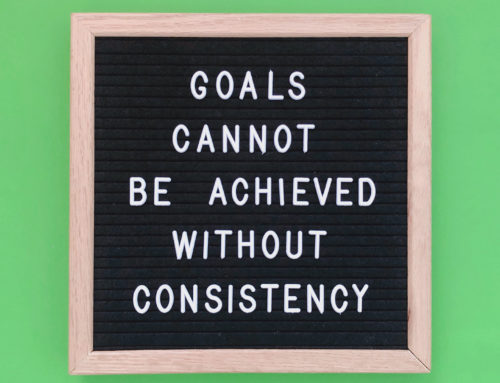Real Estate Call to Action
In this episode of the real estate marketing podcast we had a great discussion about how and when to use a Real Estate Call to Action in your real estate marketing. We covered the importance of including a Real Estate Call to Action (CTA) in all of your marketing efforts, measuring the effectiveness of your CTA’s, mediums, and leading the reader down the sales funnel, among others.
One piece of information that I like most about this podcast was talking about the social media marketing aspect of CTA’s. The take away from that was to provide something of value to your audience on social media. And that something of value doesn’t have to be a physical thing, more often than not it is best to provide knowledge or information that is valuable. Something like reminders to file important papers before tax deadlines, or home improvement tips, or even a recommendation to a good contractor.
See below for take away points and show notes. Thanks for listening!
Take aways
- Put Calls-To-Action in every marketing campaign
- Lead the reader down the sales funnel
- Provide something of value
- Design matters
- Create a sense of urgency
- Use analytics campaign code to track CTA responses
- A/B testing is a great way to optimize your CTA
- Create value for the reader
Show Notes
- What is a CTA [0:50]
- What mediums [2:30]
- Where do CTA’a go [3:20]
- More mediums [4:05]
- Leading the consumer [5:20]
- Providing something of value [6:00]
- What do I want the consumer to do next [8:30]
- CTA Design [9:34]
- CTA Placement [12:40]
- E-Book Downloads [13:13]
- Create a sense of urgency [14:33]
- Tracking Calls-to-Action [16:25]
- A/B testing [19:00]
- Social Media CTA [21:25]
Podcast Transcription:
Adam Small: Good afternoon, this is Adam Small from Agent Sauce and we’re here with the Real Estate Marketing podcast. Today with me is Doug Karr of DK New Media and we’re going to be talking about real estate call to action in your marketing today.
Douglas Karr: I like that.
Adam Small: You like real estate call to action?
Douglas Karr: I do.
Adam Small: Why is that?
Douglas Karr: Everybody forgets them.
Adam Small: Right. I can’t tell you how many postcards, how many emails I’ve seen without some sort of real estate call to action. Even it’s just a, “Hey, call me.”
Douglas Karr: Yeah. Why are you putting all this content out there and doing all this work and you’re not going to tell people what you can do for them?
Adam Small: Exactly. Doug, why don’t we go ahead and start with you explaining what, for those that don’t know, a real estate call to action, a CTA, is. Give it an in-depth definition if you would.
Douglas Karr: Sure. It’s what you want the person to do next. A lot of behavior online with people that are reading content or listening to a video or watching a video, listening to a podcast, whatever, it’s you have to tell them what you want them to do next. It works when you tell someone what to do, why they should do it, and when they should do it. They magically wind up doing it.
Adam Small: Kind of like the adage, “It doesn’t hurt to ask”?
Douglas Karr: Yeah, exactly. What a lot of people, a lot of people feel like, “Well, that’s sales-y”, but it’s not sales-y. It would be something like, “If you’d like to see a demo where you can place real estate call to actions in your emails, just contact you at Agent Sauce.”
Adam Small: Right.
Douglas Karr: That’s the simplest, littlest, easiest thing. I just made that up on the fly so it didn’t sound that great, but it’s still …
Adam Small: We’ll forgive you.
Douglas Karr: In the context of this podcast, we’re going to be talking about real estate call to action, but then our real estate call to action should be telling someone why they should get a hold of you and use your software.
Adam Small: Right, at the end of the podcast.
Douglas Karr: Yeah.
Adam Small: Right. Yeah, exactly.
Douglas Karr: Did I do that early?
Adam Small: We’re not done yet.
Douglas Karr: Oh, okay.
Adam Small: You got the real estate call to action in there, which is great, but we’re not done yet. Yeah, okay. One thing I want to clarify a little bit there is that you said online and used the online example in large part because Agent Sauce is primarily an online tool. What you do is mostly online. Really a real estate call to action applies to any sort of media at all.
Douglas Karr: It sure does. Yeah.
Adam Small: It’s print, it’s signs in the yard which are like print, it’s TV advertising, it’s any sort of marketing that you do whatsoever. You need to prompt that person to do what you want them to do next. Some good mediums, you talked about email marketing. So put a button in there or a phrase or what?
Douglas Karr: Sometimes it’s just a sentence, right? Sometimes it’s a “For more information, call this number.” Most of the time it’s something that really stands out. It’s something that drives the attention of the user to it, so buttons are a pretty common methodology for it.
Adam Small: Okay, and then the button goes to what, a landing page?
Douglas Karr: Yeah. The button typically goes to a landing page that continues that conversation. If we said, “If you want to see a demo of how you can put a real estate call to action in email, get a demo of Agent Sauce here”, that landing page would be “Schedule a Demo for Agent Sauce”. You want the real estate call to action in to line up with the landing page.
Adam Small: Right. Okay, so then if it was, if the real estate agent was sending an email promoting a listing, it might be, “Hey, click here to schedule a walk-through of this listing”, right?
Douglas Karr: Yeah.
Adam Small: Then it takes them to a page where it takes about, “Okay, here’s the time and availability” and such, but it’s about that particular listing.
Douglas Karr: Exactly. Yeah.
Adam Small: Okay. What are some other effective mediums that you’ve seen for real estate call to action online in particular?
Douglas Karr: Online … It should be every medium, right? It should be everything that you’re doing. If you write a blog post, it’s good at the end of the blog post to say how you can help that person. Sometimes it’s just in your template, you just have it built right in. Email obviously, mobile apps are that way. Text messages, right?
Adam Small: Right.
Douglas Karr: Typically they have a click link to start a real estate call to action.
Adam Small: Virtual tours for real estate agents is a good example. Even landing pages. Landing pages don’t have to be the end of the real estate call to action. They can actually be the beginning of the real estate call to action if you’re promoting something like running an ad or something like that on Google and somebody clicks through to the landing page. That’s helping sell the item there or to get more information.
Douglas Karr: You’re just driving them to that decision. A lot of what you don’t want to do is you don’t want to open them up to like, send them to your homepage. If you’re sending them to your homepage, now you’re giving them all kinds of choices and they’re confused as to why you took them there. You want to keep leading them down the real estate sales funnel until they connect with you.
Adam Small: Okay.
Douglas Karr: The real estate call to action calls for a demo. Now they’re going to click on a landing page and now you got to tell them why they should register with you to get the demo, right?
Adam Small: Okay, so the real estate call to action is to get it, right?
Douglas Karr: Yeah.
Adam Small: Then you want to clarify and keep up the push to get them to actually complete. Just clicking on it isn’t enough. They actually have to complete giving the other information and that sort of thing, right?
Douglas Karr: Yeah. The click is free, but when you start asking for people’s phone number or email address or whatever, that’s when you have to give up something and you have to say, “Hey, I’m going to set expectations with you that if you give me your phone number or email address, here’s what’s going to happen next.”
Adam Small: Right. Basically, you’re offering up something of value. It’s an interesting thing when you say something of value because people think of “Oh, well, that’s something that costs us something.”
Douglas Karr: No.
Adam Small: Something expensive or whatever it is. It’s really not. Information is valuable. Information’s one of the most valuable things that we in particular have at Agent Sauce. Even though we promote a great product, a CRM and all that, it’s really the information that we provide, the how-to and that sort of thing that is of real value. That’s something that they can take with them no matter what they do.
Douglas Karr: Yeah. For a real estate agent, it could be a tour of the house. For you guys, it could be a demo of the software. Other people use white papers and eBooks. Other people use a free song download if you go to Starbucks or whatever. There’s all kinds of ways to trade information and you should try different options, too. You don’t want to just try one way and say, “Well, these real estate call to actions don’t work.” You got to try different offers.
Adam Small: It’s there’s something wrong with the real estate call to action, right?
Douglas Karr: Right.
Adam Small: Exactly. That gets into the whole concept of the silver bullet for marketing. I’m constantly telling our customers that there is no silver bullet for marketing. Our service, our product will do a great job for you, but you have to put work and effort into it. It’s not going to make you millions of dollars by itself, but if you’re working hard and working the data and working the system, it’s going to help you get there, help you achieve your goals. Real estate call to actions are the same way. You put out a terrible real estate call to action, you’re not going to get any response to them. It could be the actual real estate call to action itself or it could be the landing page that you’re taking them to in order to college their actual information. The real estate call to action is really just one step in the funnel, in the sales and marketing funnel. The next step is that landing page and getting them to commit to giving you that valuable information of their name, their contact information so that you can, for a real estate agent, commit to a listing or a meeting or whatever it may be. For any other company, it’s whatever it is they’re doing and promoting.
Douglas Karr: Yeah. I think if I’m a real estate agent and I’m producing anything whether it’s a podcast, a blog post, email, whatever, I should always be asking myself, “What do I want them to do next?” Then telling them what you want them to do next.
Adam Small: Right. No matter what it is they’re doing, there should be a real estate call to action.
Douglas Karr: Yeah.
Adam Small: If it’s sending an email with a recipe in it, there should be a real estate call to action to collect data from the recipient there if they’re interested in buying and selling for a real estate agent in this case. If they’re doing a blog post, if they’re doing a podcast, if they’re updating their page, even on their own regular pages on their website, there should be that real estate call to action.
Douglas Karr: Absolutely.
Adam Small: I can’t tell you how many times I go to a website, different sites, and I see the real estate call to action in three different places on the same page, right?
Douglas Karr: Yeah.
Adam Small: It’s above the fold, which is when the page first loads, and then further down after a good bit of content and then at the very bottom as well. It’s “Sign up for the one month free”, whatever it may be, that real estate call to action is there. The reason it’s there is because it works, right?
Douglas Karr: Yeah, absolutely. Again, you’ve got the person’s interest with the content. They’ve landed there and they’re reading deeper. Now you’re just reminding them, “Here’s where you should go next. Here’s where you should go next.” Hey, the other thing that I would say about real estate call to actions. One is size matters. (laughs). This is a PG show. I know. Having something that stands out like a significantly contrasting button really makes a huge difference and then telling when you want someone to do it is the weirdest thing.
Adam Small: So putting “now” on the end of it?
Douglas Karr: Putting “now” on the end of it. If you say, “Click here” and you test another one that says, “Click here now”, “now” will get more clicks.
Adam Small: Really?
Douglas Karr: Yes.
Adam Small: What about colors?
Douglas Karr: Those are.
Adam Small: You’re talking buttons right now, right?
Douglas Karr: Yeah.
Adam Small: Most people want their buttons and such to match what their website looks like, that general theme. Does color have any impact on that?
Douglas Karr: Color has a huge impact on people’s perception of what’s going to happen. Colors like blue are trust colors and stuff like that. Colors like red are alarming. A lot of people try to stay within the theme of their site and try to make things look just like everything else, but honestly, it might not work. You really should test alternate colors and just to see what happens.
Adam Small: Okay. As I think about it and sitting here thinking about it, one of the things that comes to mind for me is that if it matches your theme and blends into your theme, then it’s harder to notice, right?
Douglas Karr: It’s not going to call. Yeah.
Adam Small: It’s harder to notice, so put something really garish out there, maybe. I’m not recommending you do that, just saying test it.
Douglas Karr: On our site, all the real estate call to actions are a really bright blue.
Adam Small: It still blends in with your theme, but it’s really noticeable.
Douglas Karr: It’s the blue from our theme, but it’s sitting there on a white background with boring text.
Adam Small: Right. It’s really noticeable. Even though it matches, it’s still very noticeable.
Douglas Karr: Right.
Adam Small: Now beyond online and buttons and such, what about images that are linked and that sort of thing? Do images help as opposed to just having a straight button?
Douglas Karr: The funny thing is we put buttons on the images a lot of the time.
Adam Small: Oh, so you hyperlink the whole image and then you put a little button on there and it looks like the button.
Douglas Karr: It’s just that behavior that people are taught to press a button. If you don’t have a button, people don’t press it. If we do a real estate call to action in a image, we typically put a button there. Some people put a mouse pointer there, too. That works to an extent, but yeah.
Adam Small: We’ve been trained to go with a button, right?
Douglas Karr: Yeah.
Adam Small: Look for a button.
Douglas Karr: Yeah, exactly.
Adam Small: Okay. Interesting. Now you talked about eBooks and blog posts and such. Blog posts are really website pages, for lack of a better term. Do you ever reach a point where, is there an issue with having a real estate call to action on every page? I’m thinking of WordPress where you can have a sidebar that’s got widgets in it and you can literally just do it once and it shows up on every page. Is there an issue with that?
Douglas Karr: I don’t think so.
Adam Small: Okay.
Douglas Karr: I think people that don’t have them are missing out. I don’t think people go to my articles and think, “Gosh, there’s too many real estate call to action here. This is terrible.” They go there to get the information that they wanted. If I provide them, “Here’s three more unique resources that you could look stuff up on”, they tend to click on one. I think it’s you’re providing something of value. “Here’s how to engage deeper with us.”
Adam Small: Okay. How about eBooks? You get into eBooks. Most eBooks are some variation of a PDF.
Douglas Karr: Yep.
Adam Small: You can embed links into a PDF so that they’re easily clickable, right?
Douglas Karr: Yep.
Adam Small: You could put real estate call to action within the PDFs themselves, which is great. Again, it’s the same concept. Tailor the landing page to that particular real estate call to action hopefully to continue driving that lead down the sales and marketing channel, right?
Douglas Karr: You’re saying if you were going to give everybody a link to a PDF or event that you were at or something where you’re going to send a PDF by email?
Adam Small: I was thinking more along the lines of I did a short eBook, right? I put it out there for free without people having to register for it, which you could actually do it in two ways. One could be you require people register to get to eBook.
Douglas Karr: That’s what I would do.
Adam Small: That’s what you would do. Okay. The other one would be that in the eBook itself, you could actually put a real estate call to action. Maybe you do both.
Douglas Karr: Yeah, you could.
Adam Small: You could put a real estate call to action in the eBook itself and link it back. We’ve got one that we put out on email marketing for realtors. In the eBook, we’ve got links that go back to the website. What about the timeliness of a real estate call to action, Doug? Is there a timeliness issue?
Douglas Karr: The thing is if you can create a sense of urgency around a real estate call to action, more people will click it.
Adam Small: That’s getting back to where you’re saying, “Click here now” versus “Click here”.
Douglas Karr: Yeah, but even stuff like, “If you download this recipe from the site in the next hour, I’ll also send you my eBook.” Things like that or “Make sure you register with me now because we have an open house showing.”
Adam Small: On Sunday or something.
Douglas Karr: “On Sunday and I can get you all the information.” When you put a deadline or a sense of urgency around it, less people will abandon it and more people will sign up.
Adam Small: Even something as simple as “Schedule a viewing soon because this house is going to go fast.”
Douglas Karr: Yeah, exactly.
Adam Small: There’s no real hard and fast date there, it’s just trying to create that sense of urgency and reinforcing that.
Douglas Karr: Yeah, and I would try to use stats like, “Average homes in this neighborhood sell-”
Adam Small: In 30 days.
Douglas Karr: “In 30 days. Be sure to sign up now for our open house so that you can get a personal tour or something by Friday.”
Adam Small: Right. Reinforce it with a little factoid or whatever. That reinforces your point.
Douglas Karr: Again, you want to create that sense of urgency in the person’s head that, “Oh, if I leave right now, I can’t come back. I might not be able to come back and do it again.”
Adam Small: “I might miss out. I might lose out.” It’s funny because right now, there’s a TV commercial where they’re talking about they’re calling it a FOBO, Fear of Better Offer. You’re trying to maximize on that same sort of thing, fear of losing the offer instead of better offer, right?
Douglas Karr: Yeah.
Adam Small: By adding that sense of urgency.
Douglas Karr: A lot of people do it and it’s just not true. You ever see the TV ads that if you call in the next five minutes?
Adam Small: Oh, yeah. All the time. Totally.
Douglas Karr: But they’re running the commercial for three months.
Adam Small: Right.
Douglas Karr: I don’t think you should lie like that.
Adam Small: No. I would agree. At times, I’ve thought to myself because I’ve had some late nights up programming and that sort of thing. I’ve seen the commercial on in the background and I’d go, “Do they really have a schedule?”
Douglas Karr: No.
Adam Small: I thought, “There’s just no way that they’re doing that.”
Douglas Karr: A lot of times with TV commercials, the reason why they put that in is because they want you to use the campaign code so they can see the effectiveness of-
Adam Small: Of the TV itself.
Douglas Karr: Of the TV ad.
Adam Small: Yeah. That’s a measuring, analytics metric that they’re trying to do there.
Douglas Karr: Yeah. A lot of times people will see something on TV and then go to the website and buy it or go to Amazon and buy it or go wherever and buy it.
Adam Small: Right. They have no way of knowing what really drove the sale and what marketing they’re paying for is really effective.
Douglas Karr: If they say you’re going to get the second knife set free if you put in this code online, now all of a sudden they can track it.
Adam Small: Right. This is a little bit of a segue from real estate call to action, but is there a lot of value in doing something like that when you do the real estate call to action? Adding a sales code, that sort of thing?
Douglas Karr: Yeah. The great thing with real estate call to action is because someone’s going to click on it, you can make that actionable in analytics data too and email and everything else. We’d recommend people put actual Google Analytics campaign code on it. Then you can see where people came from. If you had a email, if they came from email or they came from social media or they came from a virtual tour or mobile, anything, that way they can go into their Google Analytics and they can look up campaigns and see where people are coming. It’s a little bit funky, but you have to put some tracking code on the end of a link.
Adam Small: That’s a little bit more of an advanced topic, but still. It’s a great way to help you maximize your marketing efforts because then you can actually track what’s working and what’s not. If you’re putting a bunch of money into some online ad thing and you’re getting one lead for every 10 you’re getting from something else, you need to focus on the one you’re getting the 10 leads from, not the one that you’re getting the one lead. Or you need to revamp your system that’s sending you one lead because something’s not working there. That goes back to the poor real estate call to action.
Douglas Karr: We do things like we’ll flip real estate call to action on a page, too. You can test.
Adam Small: AB testing?
Douglas Karr: Yeah, do AB testing and actually do event tracking so you can see which one they clicked on. They clicked on the green one versus the red one. You can do things like that, too. Those are more advanced as well.
Adam Small: Right.
Douglas Karr: Testing is a great way to optimize. You’re doing all this hard work. If you could squeeze out 20% more visits or clicks, then why wouldn’t you?
Adam Small: Which eventually leads to even if it’s only 10% of the 20% more, you’re getting one or two more leads that convert and which hopefully generates more revenue, right?
Douglas Karr: Yeah.
Adam Small: When you’re talking the real estate sales cycle and the real estate sales in general, what your percentage of whatever a listing goes for, one extra lead a week or a month that converts, you’re talking thousands of dollars in potential [crosstalk 00:20:02].
Douglas Karr: Yeah, absolutely. The other thing I’ll say with testing is you’ll always be surprised at the results. I always think that I know and I’ve been marketing for a long time. Every time I test, it winds up surprising me.
Adam Small: You think, “This is killer. I know this is working great” and it’s just not?
Douglas Karr: It bombs.
Adam Small: Or “This is terrible. It just can’t be working” and it’s great, right?
Douglas Karr: Yeah. Sometimes we have clients and they have the most god-awful 1990s looking websites.
Adam Small: The long form where it’s just all the way down.
Douglas Karr: They convert brilliantly.
Adam Small: Right.
Douglas Karr: We build this new theme and optimize it and everything else and they’re click-through rate goes down.
Adam Small: They’re screaming bloody murder at you, right?
Douglas Karr: Yeah. Sometimes that’s users have to learn the new user interface and so they drive back up and then increase. You want to pay attention to like, new visitors versus existing ones, but still it’s always a surprise to me. I’m always amazed that … “This is crazy.”
Adam Small: There’s no set rule in marketing that this is going to work and this isn’t going to work.
Douglas Karr: Exactly. Anybody that tells you that there is is lying and not testing.
Adam Small: Not testing. Ignorance is bliss, right?
Douglas Karr: Yeah, exactly.
Adam Small: That goes back to set hard and fast rules. “Oh, you need to do six blog posts a day and one of them needs to be personal and three business and two something or other”, which is off-topic from the real estate call to action. Although, your social media posts and stuff like that should contain real estate call to action as well-
Douglas Karr: Or your profile at least. Sometimes it’s you can have all these engaging tweets on Twitter and you don’t want to have a real estate call to action in every single one.
Adam Small: That’s what I was just going to ask you.
Douglas Karr: On your social profile, yeah. Have a nice one.
Adam Small: That’s what I was just going to ask you. What are the dangers of it in social media insofar as that goes?
Douglas Karr: In social media, a lot of what people get wrong is that it’s not a hard sell opportunity. It’s a relationship opportunity. For, let’s say, a real estate agent on social media, here’s what I see every day and it really irritates me is I have real estate agents that I follow online. They’re friends of mine and stuff and they tell me every day, “I sold this house.” “Sold, closed this one in five days. Closed this one in seven days.” I don’t care. What does that have to do with me? I’m not shopping for a house or looking for a house.
Now, they’re a real estate agent, so if they really wanted to create value for me, a homeowner, they would tell me, “Wow. Lowe’s has a really good special on whatever this weekend” or “Oh, wow. Check out this cool fire pit that you can make yourself” or “Here’s a great tip to keep your heating costs down”. Build value for me as a homeowner and then when I go to buy a house, you’re top of mind because you created great value with me.
Adam Small: Or even something along the lines of, “This guy just came out and repaired this, did this repair or whatever, and he did a great job.”
Douglas Karr: Yeah.
Adam Small: It’s not quite a real estate call to action insofar as the realtor goes, but put a link to their … something to contact that person, some way to contact that person, perhaps.
Douglas Karr: Yeah, absolutely. When you’re just advertising what your stats are or whatever and your sales and everything and bragging about yourself, that’s not creating any value for the readers there. You got to create value for the readers and then that’ll build that trust and authority that they’ll stick with you and eventually sell a house with you.
Adam Small: Okay, great. Doug, thanks for joining us today. This has been Adam Small with Agent Sauce and the Real Estate Marketing podcast. If you want any more information, you want to learn more about us, feel free to contact us at 877-958-8043 or agentsauce.com.







